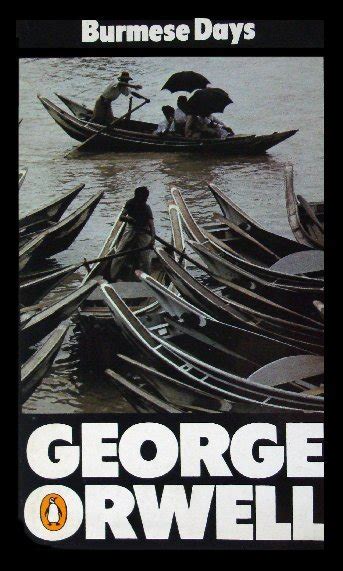A resource by Sarah Gibbs
Sarah Gibbs recently completed her PhD in English Literature at University College London (UCL). Her doctoral thesis examined print culture and political communication in the works of George Orwell. She is Instruction & Research Librarian at Medicine Hat College, and a Fellow of the Royal Society of Art (RSA).
Orwell on Kipling
[In Anglo-Indian families,] [he] was a sort of household god with whom one grew up and whom one took for granted whether one liked him or whether one did not. […] For my own part I worshipped Kipling at thirteen, loathed him at seventeen, enjoyed him at twenty, despised him at twenty-five, and now again rather admire him. George Orwell’s obituary for Rudyard Kipling, New English Weekly, 1936
It is notable that Kipling does not seem to realise […] that an empire is primarily a money-making concern. […] George Orwell, “Rudyard Kipling.” 1942
Kipling is the only English writer of our time who has added phrases to the language.
George Orwell, “Rudyard Kipling.” 1942
For anyone writing on the Raj, that is, the direct rule of India by the British Government from 1858 to 1947, Rudyard Kipling, the “unofficial poet laureate of Empire”, loomed large. George Orwell, the son of an Indian Civil Service member, who, like Kipling was born in India and had served as a British police officer in occupied Burma, was compelled to respond to his famous literary forebearer. Many scholars consider Orwell’s first novel Burmese Days (1934) a cynical riposte to Kipling’s pro-Empire writings. This resource introduces the differences, and similarities, between the authors’ colonial experiences, and the works those experiences inspired. It also examines the limits of Orwell’s anti-imperialism.
Rudyard Kipling (1865-1936)
Joseph Rudyard Kipling was born in 1865 in Mumbai (then Bombay), India, and passed what he characterised as an exceptionally happy childhood there. His father, John Lockwood Kipling, was a well-respected expert in Buddhist art. Kipling considered Hindustani to be his first language. The great trauma of his young life occurred in 1871 when he was sent to England for schooling.
Kipling rejoined his parents in India at the age of seventeen and began work as a journalist for the Civil & Military Gazette. He reported for newspapers for over six years. His first book, a collection of satirical verse about official life in India entitled Departmental Ditties, was published in 1886. He returned to England in 1889 to pursue literature full-time.
Although Kipling never again lived there, his best-known works consider the British Raj. His Empire-focused novels and stories became so popular that they furnished the entirety of many people’s knowledge of India. His texts, often humorous, are characterised by Kipling’s fascination for Indian culture, fully endorsed British rule in the country.
Kipling’s masterpiece is Kim (1901), the story of Kimball O’Hara, an Irish orphan raised in the backstreets and bazaars of Lahore. The author wrote to Charles Eliot Norton in 1900:
I’ve nearly done a long leisurely Asiatic yarn in which there are hardly any Englishmen. It has been a labour of great love and I think it a bit more temperate and wise than much of my stuff.
The critics agreed. The narrative, which portrayed India under British rule as both protected and prosperous, won universal praise. Even Henry James was moved to declare in a letter to Kipling, “[T]he beauty, the quantity, the Ganges-flood leave me simply gaping as your procession passes.”
George Orwell (1903-1950)
 Orwell was born in Motihari, Bengal in 1903 but, unlike Kipling, he developed no enduring early connections to India and at the age of one, he relocated to England with his mother and sister. While Kipling’s highly educated and cultured family had access to the upper echelons of society in the Raj, Orwell’s father was an official in the ignoble Opium Department, responsible for the state sanctioned drugs trade.
Orwell was born in Motihari, Bengal in 1903 but, unlike Kipling, he developed no enduring early connections to India and at the age of one, he relocated to England with his mother and sister. While Kipling’s highly educated and cultured family had access to the upper echelons of society in the Raj, Orwell’s father was an official in the ignoble Opium Department, responsible for the state sanctioned drugs trade.
Though the young Orwell, then Eric Blair, was an active reader and won a scholarship to Eton, he became an indifferent student, and was not recommended for university admission. In 1922, he sailed to Burma, where he would spend five years in the Indian Imperial Police.
During his colonial service, Orwell traversed Burma, working in six different locations. His duties included overseeing ammunition and equipment stores, managing the investigation of minor crimes, supervising night patrols, and organising the local police stations and training schools. From his subsequent writings, although he never confirmed it, we can also conclude that he participated in the executions of prisoners. Orwell contracted dengue fever at his final posting and returned to England in 1927 on medical leave. While at home with his family, he resigned his commission. He wrote in “Shooting an Elephant” (1936) that his time in the police force had shown him the “dirty work of Empire at close quarters”; the experience made him a lifelong foe of imperialism.
QUESTION: Think about the difference in Orwell’s and Kipling’s personal experiences within the British Raj. Before you read, imagine how this might shape their viewpoints of Empire.
The Limits of Orwell’s Anti-Imperialism
And it was at this moment, as I stood there with the rifle in my hands, that I first grasped the hollowness, the futility of the white man’s dominion in the East. […] [W]hen the white man turns tyrant it is his own freedom that he destroys. “Shooting an Elephant.” 1936
For five years I had been part of an oppressive system, and it had left me with a bad conscience. Innumerable remembered faces–faces of prisoners in the dock, of men waiting in the condemned cells, of subordinates I had bullied and aged peasants I had snubbed, of servants and coolies [sic] I had hit with my fist in moments of rage […] haunted me intolerably. I was conscious of an immense weight of guilt that I had got to expiate. The Road to Wigan Pier, 1937
Hitler is only the ghost of our own past rising against us. He stands for the extension and perpetuation of our own methods, just at the moment when we are beginning to be ashamed of them. Notes on the Way. Time and Tide, 30 March 1940
While Orwell acknowledged the unjust and exploitative character of imperialism (as seen in the quotes above), his condemnation of Britain’s Empire did not always generate in him a corresponding sympathy for indigenous peoples suffering under it. Professor Douglas Kerr, who has written extensively on Orwell’s colonial experiences and works, identifies a number of limitations to the author’s anti-imperialist attitudes.
Burmese Days is thoroughly Eurocentric, a novel of colonial life squarely centred on the experiences of an English timber merchant, John Flory, a member of a small European community in a town in Upper Burma. It rarely enters the private life or the consciousness of local people. Flory has an Asian mistress, an Asian friend, and an Asian enemy, but virtually all the novel’s action is focused through his European consciousness. (151)
In Orwell’s Empire-focused novel and essays, indigenous characters are under-developed, and peripheral to narratives of European experience. Furthermore, he notes in “Law and Race in George Orwell” (2017) that Burmese Days fails to engage with the racial hierarchies that allow John Flory, a civilian, to command Indian army officers in a moment of civil strife; the novel relies on the assumption that the white man or “sahib” will always be in control (312). According to Kerr, the text does not support imperialism, but neither does it endorse Burmese independence.
QUESTIONS FOR DEBATE AND DISCUSSION
- Can we enjoy a writer’s work if we don’t like their politics?
- How far can people ever truly step outside their experiences?
- What does it mean, as an author/writer to show solidarity/sympathise with someone elses’s experiences? What are the limitations of this?
READING & WRITING EXERCISE
- Read George Orwell’s Essay ‘Shooting An Elephant’
- Think About:
- How the writer communicates conflicting feelings and pressures about an action
- Have you ever felt that kind of inner conflict in a personal situation? Why? How does it manifest? What does it feel like?
- Consider the language used within ‘Shooting an Elephant’ think about how Orwell builds a picture of place and people. Some of the way that Orwell uses language feels uncomfortable today, why?
- Writing Challenges:
- Consider how you might write about your own experiences of internal conflict, could you portray it through the creation of a character or new scenario? Would you give your reader insight into the protagonist’s thoughts like Orwell? Or use external third person description to build a sense of conflict?
OR
- Consider how the events of “Shooting an Elephant” may have been perceived by the Burmese people, rewrite the events from this perspective
WATCH
- In 1950 Rudyard Kipling’s novel ‘Kim’ was adapted into a film. The film trailer (linked below) is a shocking time capsule of racist stereotypes and whitewashing. This trailer is difficult and uncomfortable viewing, but it raises important questions about representation and damaging colonial stereotypes.
- Watch here – Warner Brothers “Kim” Trailer (1950)
- Think about the language used within the trailer, imagine how it might impact European and American perspectives of the ‘East’ in 1950, that were then the modern states of India and Pakistan, how does it ‘other’ the location?
- “Splendid adventure and exotic romance”
- “Actually, filmed in its authentic location…India, sparkling jewel of the mystic orient!”
- “The man of mystery”
- “Turbulent empire of unbelievable magnificence”
- “Strange land of princes and beggars”
- “Of hard riding mountain fighters and perfumed hareem girls”
- “Forbidding men of 100 races”
- “The threat of wild bandits”
- Representation: Another shocking facet of this trailer is the casting of white Americans within the roles despite Kipling’s claim that his novel contained “almost no Englishmen”. What does this reveal about the way that writers works were – and still are in different ways – translated, adapted and claimed by different groups for different audiences?
FURTHER READING/WATCHING:
- Burmese Days, George Orwell (1934) – Try your local library – find out more here
- Kim, Rudyard Kipling (1901) – Try your local library
- Douglas Kerr: Orwell, Kipling, and Empire

